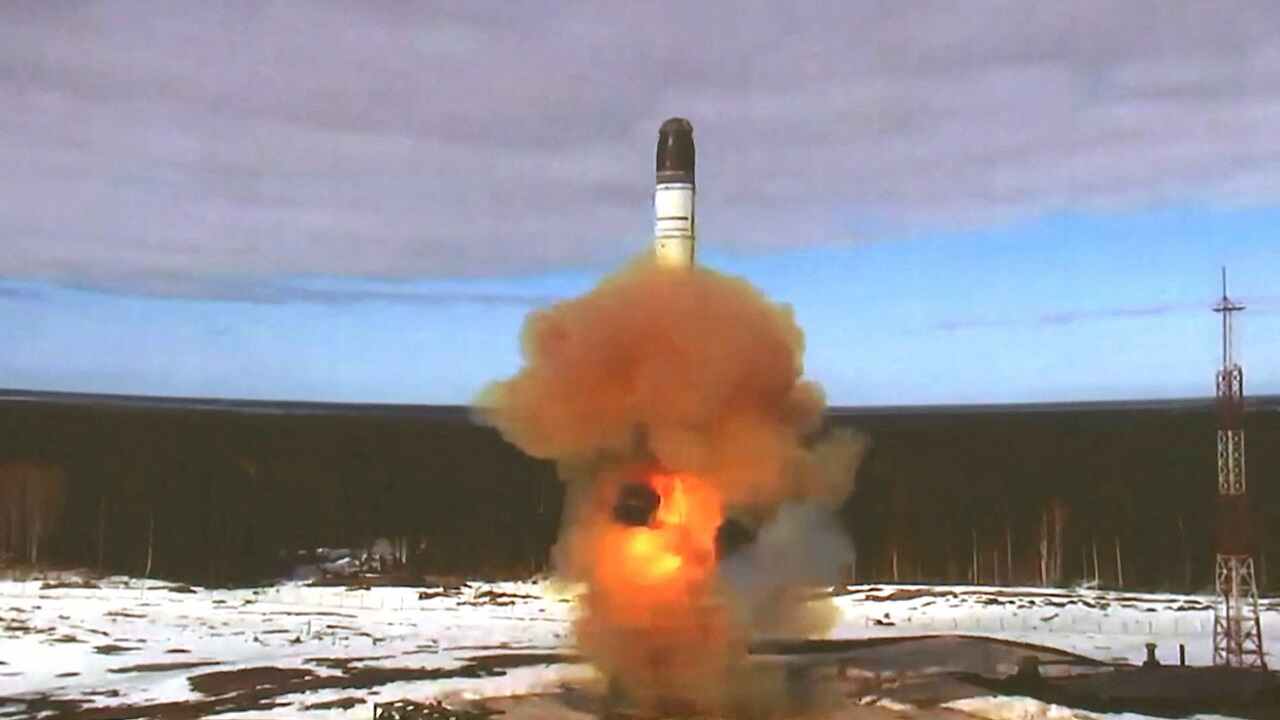
Amid Ukraine invasion, Russia tests "long-awaited" nuclear capable missile Sarmat

Russia launched a new nuclear-capable intercontinental ballistic missile, which President Vladimir Putin said would “make Moscow’s enemies stop and think”.
The Russian military said that “the long-awaited” Sarmat missile had been test-launched for the first time from Plesetsk in northwest Russia and hit targets in the Kamchatka peninsula, which is nearly 6,000 km (3,700 miles) away.
The test of the Sarmat, under development for years, came at a moment of extreme geopolitical tension between Russia and Ukraine. Russia has yet to capture any major cities since it sent tens of thousands of troops into Ukraine on February 24.
“The new complex has the highest tactical and technical characteristics and is capable of overcoming all modern means of anti-missile defence. It has no analogues in the world and won’t have for a long time to come,” Putin said after the missile’s launch.
“This truly unique weapon will strengthen the combat potential of our armed forces, reliably ensure Russia’s security from external threats and provide food for thought for those who, in the heat of frenzied aggressive rhetoric, try to threaten our country,” Putin said.
Also read: Russia launches offensive in Donbas; Ukraine braces for 2nd phase of war
While announcing the Ukraine invasion a few months ago, Putin made a pointed reference to Russia’s nuclear forces and warned the West that any attempt to get in its way “will lead you to such consequences that you have never encountered in your history.”
Putin had also ordered Russia’s nuclear forces to be put on high alert, a few days after the invasion.
Russia’s Defence Ministry said that Sarmat was fired from a silo launcher at 15:12 Moscow time (12:12 GMT) on Wednesday.
Also read: Five missile strikes hit Ukrainian city of Lviv, cause multiple explosions; 6 dead
“Russia’s nuclear forces will start taking delivery of the new missile in the autumn of this year once testing is complete,” head of ROSCOSMOS space agency Dmitry Rogozin was quoted as saying by Tass.

